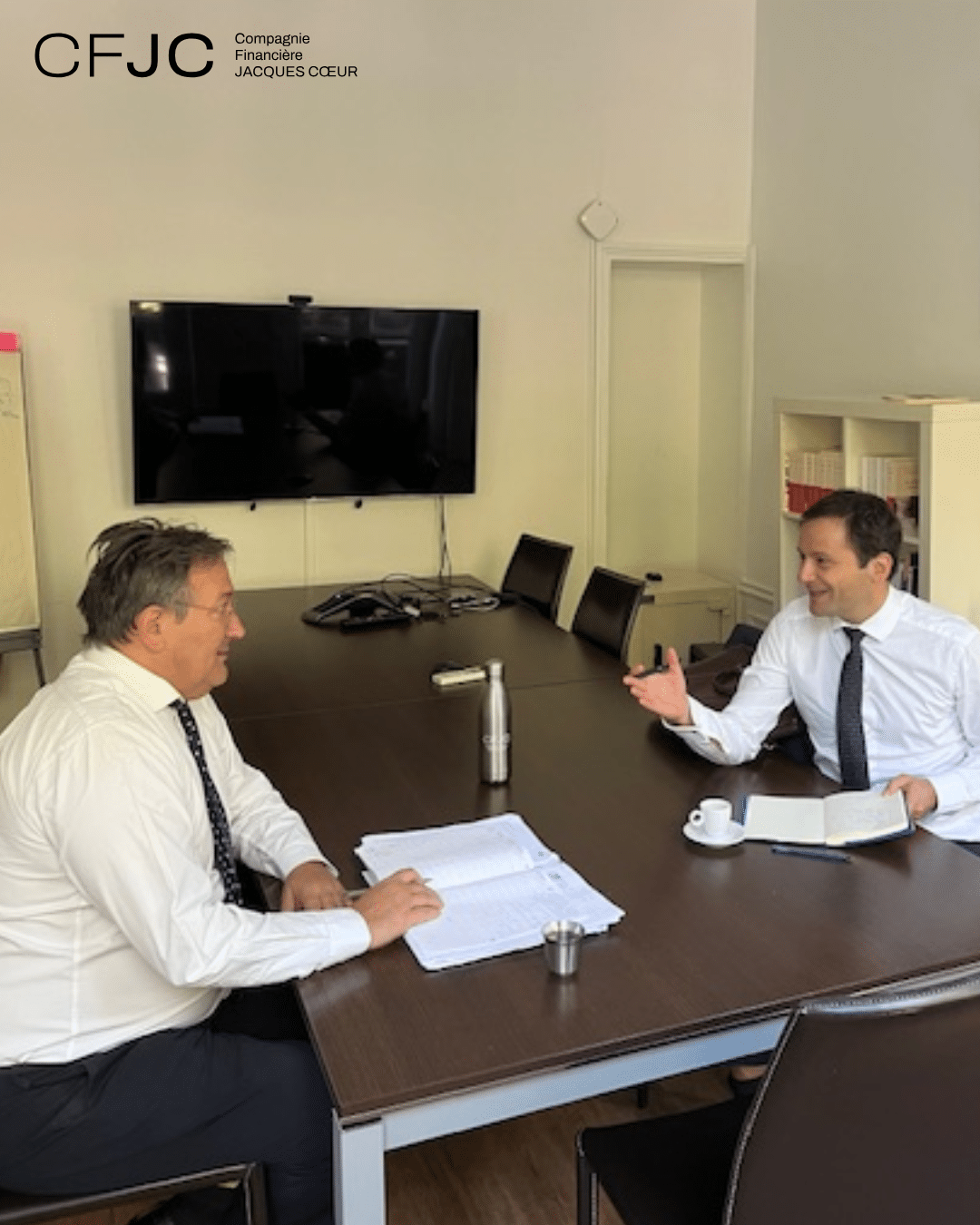Uncategorized
September 2025 - JSK Advidory's Newsletter
Superpower your fund-raising – with insights from a veteran who has raised over €4B Fund raising has been our clients’ number 1 priority over the past 2 years. Even good performance is not enough to keep the flows coming in in a much tougher fund-raising market than a few years ago. We thought it would be useful to hear from a pro on some of the current trends and learn some of the dos and don’ts of fund-raising in the current environment. François-Xavier Bouis founded Compagnie Financière Jacques Coeur in 2003 and has raised over €4B on behalf of investment firms across all asset classes. Here are some of his thoughts on the current context, with an emphasis on European specificities. François-Xavier, what advice do you have for international investment firms looking to raise capital in Europe today? The approach should vary by client segment and country. Specifically on France, my home market, to target individuals through life insurance wrappers (unit-linked) or wealthy clients of French private banks and IFAs, firms need big-budget marketing efforts to build brand awareness, a multi-product catalogue, strong network support. Generalist firms are at an advantage. It is a hard segment to penetrate because it is relatively closed and averse to new things, and almost no one can do it in a meaningful way without sizeable investments, on the back of performance only. For French institutional investors, it's quite different: specialization, an excellent track record, sufficient assets under management to not fall foul of insurers’ or other large asset owners’ holding ratio limits, impeccable management reports, and regular on-site visits from investment professionals are all important. For some French allocators, mastering French is a differentiator. The more innovative the strategy, the greater the chances of success. If you come in with something that already exists in the market, chances are you won’t get a meeting. What are the main investment decision criteria for French institutional investors? The primary concern of institutional investors during the investment process is reputational risk. This comes before financial considerations. So, reassuring on that front from the get-go is critical. Most institutions have now established a formal decision-making process involving several people. It is less a relationship business than it used to be. Allocation decisions are analyzed by a committee that often includes management or elected representatives of mutual companies, a senior executive from finance, and the professional in charge of due diligence. Depending on the size of the institution, the investment committee meets once a week to once a quarter. In other words, it is rare today for an investment decision to be made by a single person. It is crucial to know who is involved in the decision-making as I have seen investment firms waste time with poorly allocated coverage of decision-makers. Predictably, institutional investors expect minimum IRRs by asset class. For example, they will look for whatever reassurance they can get (to the extent that they can get any by looking at track-records) the investment firms they choose to allocate to can deliver a minimum IRR of 3% for core real estate, 6% for senior debt, 8% for junior debt, 12% for infrastructure equity, and often more than 20% for venture capital. ESG labels (“article 8”, “article 9”) have become table stakes for many European institutions, which I know creates a rift with American allocators. Holding ratios can be a challenge for the dozen or so French institutions that write checks above €50m. They typically don’t want to control over 10% of a strategy’s AuM. How has the fundraising process evolved in recent years? Private markets demand seems to have peaked around 2020, as European institutional investors were heavily under-invested in illiquid assets until then. Since 2022, private equity in particular has been a lot less popular. Demand from institutional investors is weaker because most have reached the threshold they have set for themselves (with guidance from regulators such as Solvency II rules) of 10% of their total assets under management allocated to illiquid assets. Fundraising in the real estate sector has been at its lowest for several years, with the office segment being the most impacted by the COVID crisis. Private debt funds have displayed the strongest resilience. What role can a placement agent (also called third-party marketer or TPM) play to help investment firms? When is it preferable to have your own sales force? Investment firms should look at the decision to hire a TPM just like any other outsourcing/insourcing decision, with the same cost/benefit framework. A TPM is a good solution for firms who do not yet know the market and do not have representatives in a specific country. A TPM is useful for newcomers in their learning curve of local investors. Before making more substantial investments in local infrastructure and staff, using an external commercial solution can be a great way to accelerate the establishment of a new brand and to test innovative products. It is undoubtedly in the institutional sector that outsourcing makes the most sense. The potential impact in wholesale is much more limited. Sales to institutional investors are often built on strong personal relationships that a newcomer will not have. Now of course you should partner with the right TPM! "
